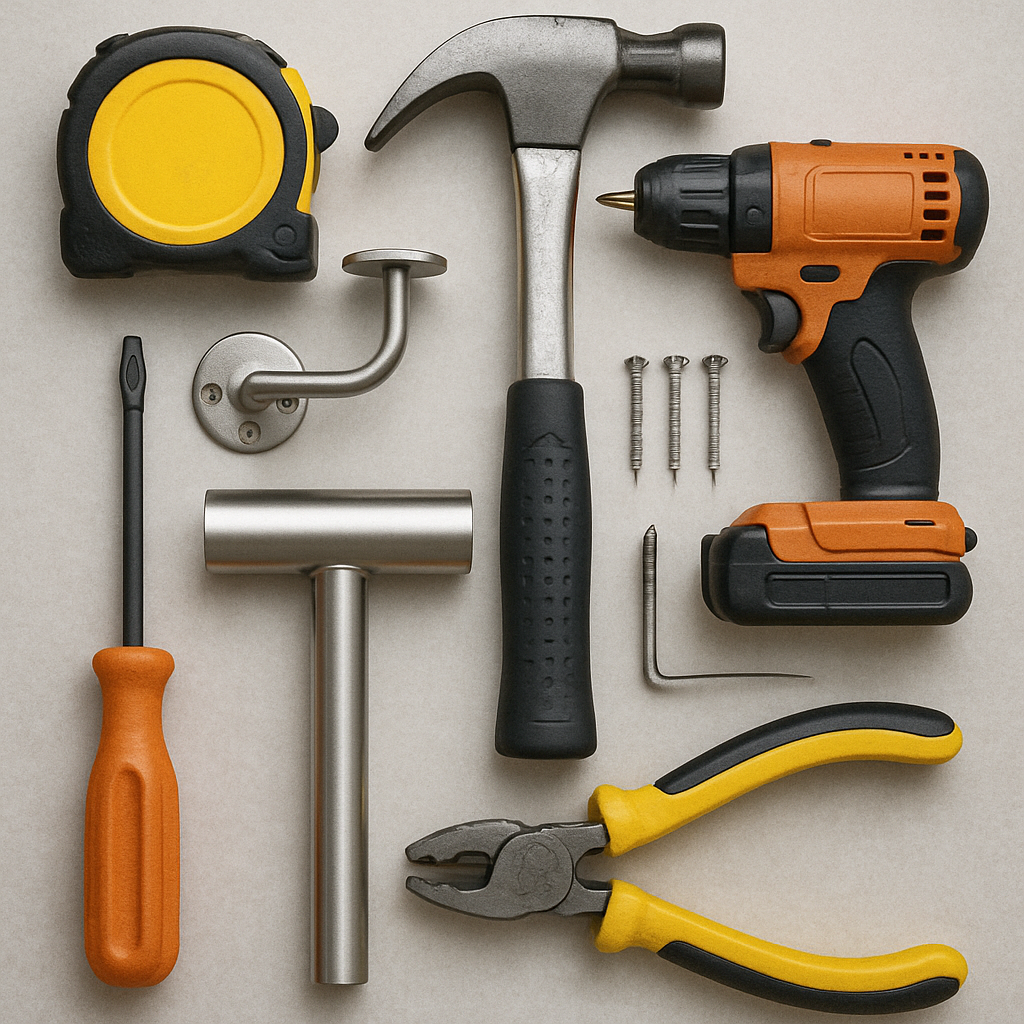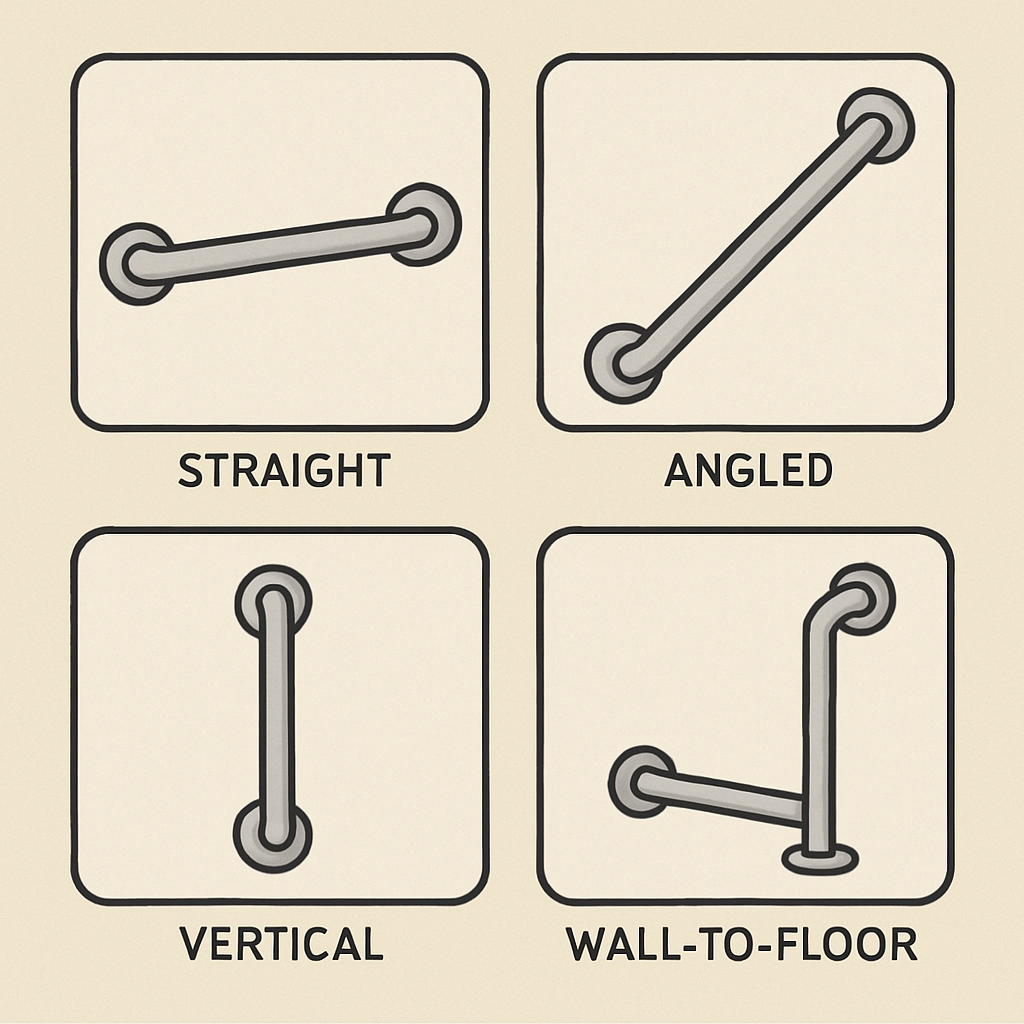 Service Hotline:13510328459
Service Hotline:13510328459
 205-206, 2nd Floor, Building 2, Xiazao Village Industrial Zone, Gaofeng Community, Dalang Street, Longhua District, Shenzhen City
205-206, 2nd Floor, Building 2, Xiazao Village Industrial Zone, Gaofeng Community, Dalang Street, Longhua District, Shenzhen City
 Service Hotline:13510328459
Service Hotline:13510328459
 205-206, 2nd Floor, Building 2, Xiazao Village Industrial Zone, Gaofeng Community, Dalang Street, Longhua District, Shenzhen City
205-206, 2nd Floor, Building 2, Xiazao Village Industrial Zone, Gaofeng Community, Dalang Street, Longhua District, Shenzhen City
Time:2025-09-26 Preview:
Creating a safe and accessible bathroom is essential for individuals with mobility challenges. Bathroom accessibility handrails, also known as grab bars, play a crucial role in enhancing safety and independence. Whether you're a caregiver, homeowner, or contractor, understanding the installation process and the benefits of handrails can make a significant difference in improving bathroom safety. This guide will walk you through the steps of installing bathroom grab bars and provide insights into choosing the right handrails for your needs.
Bathroom grab bars are sturdy handrails designed to support individuals when moving in and out of the shower or bathtub, and when using the toilet. They offer a secure grip and help prevent slips and falls, making the bathroom a safer place for everyone, especially the elderly and those with disabilities.
Enhanced Safety: Grab bars significantly reduce the risk of falls, which are common in slippery bathroom environments.
Increased Independence: They allow individuals to move around the bathroom with confidence, reducing the need for assistance.
Versatility: Available in various designs and finishes, grab bars can complement any bathroom decor.
Compliance with Regulations: Installing grab bars ensures that bathrooms meet accessibility standards, which is crucial in public and commercial spaces.

Wall-Mounted Grab Bars: These are the most common type and are fixed to the wall using screws and anchors. They are highly durable and provide maximum support.
Suction Cup Grab Bars: While these are easy to install and remove, they are not as secure as wall-mounted bars and are generally recommended for temporary use.
Flip-Up Grab Bars: Ideal for small spaces, these bars can be folded up when not in use, providing more room.
Stainless Steel: Known for its strength and resistance to rust, stainless steel is a popular choice for bathroom grab bars.
Plastic: Lightweight and available in various colors, plastic grab bars are a budget-friendly option but may not be as durable.
Brass and Chrome: These materials offer a stylish look and are often chosen for their aesthetic appeal.
Length: Grab bars typically range from 12 to 48 inches. The ideal length depends on the intended use and available space.
Diameter: Most grab bars have a diameter between 1.25 and 1.5 inches, providing a comfortable grip.
Placement: Common locations include near the toilet, inside the shower, and along the bathtub. Ensure that bars are installed at a height that suits the user’s needs, generally between 33 and 36 inches from the floor.

Drill
Level
Measuring tape
Pencil
Screwdriver
Wall anchors
Grab bars
Plan the Installation: Determine the best locati0n for the grab bars and mark the positions on the wall with a pencil. Ensure that the placement is practical and meets the user’s needs.
Locate Wall Studs: Use a stud finder to locate wall studs, as securing grab bars to studs provides the most stability.
Mark Drill Holes: Hold the grab bar against the wall and mark the positions for the drill holes, ensuring they align with the wall studs.
Drill Pilot Holes: Using a drill bit slightly smaller than the screws, drill pilot holes at the marked locations.
Attach the Grab Bar: Place the grab bar over the pilot holes and secure it to the wall using screws and a screwdriver. If installing on a tiled surface, use a drill bit designed for tile to avoid cracking.
Check Stability: Ensure that the grab bar is securely attached and can support weight. Use a level to check that it is even.

Regular Inspection: Periodically check grab bars for stability and signs of wear or damage.
Cleaning: Clean grab bars with mild soap and water to prevent buildup of soap scum and grime.
Avoid Excessive Weight: Do not use grab bars for hanging heavy items, as this can compromise their integrity.
Bathroom accessibility handrails are an essential safety feature in any home or facility. By choosing the right type, material, and placement, and following proper installation guidelines, you can significantly enhance bathroom safety and accessibility. Whether you are a DIY enthusiast or a professional installer, understanding the nuances of grab bar installation ensures a secure and functional bathroom environment for everyone.
